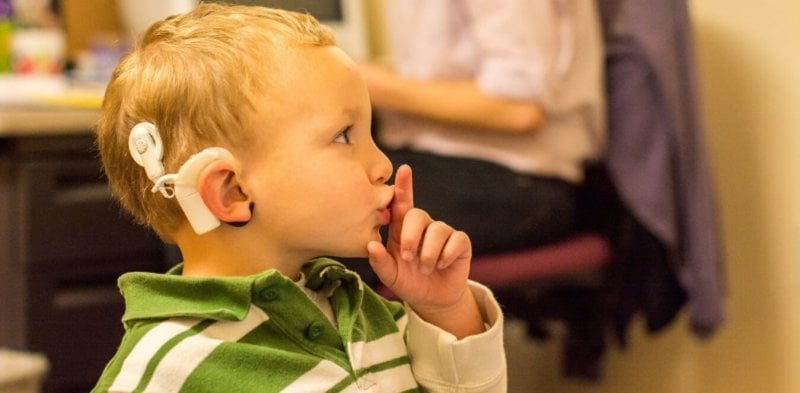An improved gene therapy vector restores hearing and balance in genetically deaf mice, according to Boston’s Children’s Hospital researchers…[T]he mice’s levels of hearing are reported to be able to detect sounds as soft as 25 decibels, which is comparable to a whisper.
…
The new study found that [the newly developed synthetic vector] Anc80 could successfully transfer genes to the harder-to-reach areas of the outer hair cells when introduced into the cochlea.
“We have shown that Anc80 works remarkably well in terms of infecting cells of interest in the inner ear,” says [Konstantina Stankovic of Massachusetts Eye and Ear]. “With more than 100 genes already known to cause deafness in humans, there are many patients who may eventually benefit from this technology.”
…
“This strategy is the most effective one we’ve tested,” says [Gwenaëlle Géléoc, Ph.D., of the department of otolaryngology at Boston’s Children’s Hospital]. “We now have a system that works well and rescues auditory and vestibular function to a level that’s never been achieved before.”
…
The researchers also discovered that the gene therapy restored balance in the mice and eliminated erratic movements.
[The study can be found here.]The GLP aggregated and excerpted this blog/article to reflect the diversity of news, opinion, and analysis. Read full, original post: Groundbreaking gene therapy restores hearing, balance































